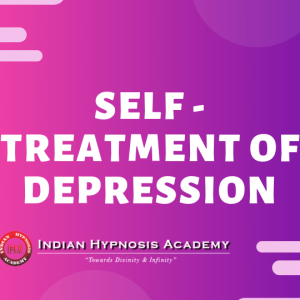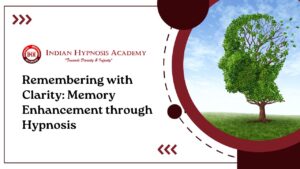Are you tossing and turning each night, desperate for a good night’s sleep? You’re not alone. Sleep problems affect millions of people in India and around the world. While traditional remedies often fall short, there’s an intriguing alternative gaining popularity—hypnotherapy. Many are curious about its potential to transform restless nights into peaceful slumbers.
Imagine drifting off into a deep sleep with ease, waking up refreshed and ready to seize the day. Hypnotherapy could be the key to unlocking that restful state you’ve been searching for. But what exactly is hypnotherapy? Can it really help with sleep issues? Let’s dive into this fascinating subject and explore how it may just hold the answers you’re seeking for your sleep problems in India.
Understanding Hypnotherapy and its Benefits
Hypnotherapy is a therapeutic technique that harnesses the power of focused attention and suggestion. It guides individuals into a relaxed state, often referred to as a trance. In this state, your mind becomes more open to positive change.
One of the key benefits of hypnotherapy is its ability to tap into the subconscious mind. This access allows practitioners to address deep-rooted issues—like anxiety or stress—that may be contributing to sleep problems.
In addition, hypnotherapy promotes relaxation and reduces tension. Many people find that it can lower their heart rate and calm racing thoughts, making it easier for them to drift off at night.
Furthermore, it’s a drug-free approach with minimal side effects compared to traditional medications. The empowerment gained through self-hypnosis techniques also enables individuals to take control over their sleep patterns in the long run.
How Hypnotherapy Can Help with Sleep Issues
Hypnotherapy offers a unique approach to tackling sleep issues. It works by guiding the mind into a deeply relaxed state, which can help alleviate anxiety and stress—two major culprits of insomnia.
During sessions, a trained hypnotherapist uses soothing techniques to encourage positive thought patterns. This shift in mindset can create healthier associations with sleep.
Many individuals find that their ability to fall asleep improves after just a few sessions. The subconscious mind becomes more receptive to suggestions aimed at promoting relaxation and better sleeping habits.
In addition, hypnotherapy teaches valuable self-hypnosis techniques. These tools empower individuals to manage their own sleep challenges long after therapy has ended.
The power of suggestion plays a crucial role here; it helps retrain the brain, paving the way for peaceful nights ahead.
The Science behind Hypnotherapy for Insomnia
Hypnotherapy taps into the subconscious mind, which plays a crucial role in our sleep patterns. When individuals enter a state of deep relaxation, their brain waves shift to alpha and theta states. These are associated with calmness and increased suggestibility.
Research shows that hypnotherapy can alter how we perceive stress, anxiety, and other factors contributing to insomnia. By addressing these root causes, hypnotherapists help clients reframe negative thought processes surrounding sleep.
Moreover, studies indicate that hypnotic suggestions can improve overall sleep quality by enhancing relaxation responses in the body. This leads to reduced cortisol levels—often linked to poor sleep—and promotes deeper slumber.
The effectiveness of hypnotherapy for insomnia is supported by various clinical trials. Participants often report significant improvements in both falling asleep and staying asleep after sessions focused on hypnosis techniques tailored for individual needs.
Case Studies: Real People’s Experiences with Hypnotherapy for Sleep
Sarah, a 35-year-old software engineer, struggled with insomnia for years. After trying various remedies without success, she turned to hypnotherapy. Her sessions focused on relaxation techniques that helped her quiet her racing thoughts before bed. Within weeks, Sarah noticed significant improvements in her sleep quality.
Another compelling story is that of Raj, a businessman who frequently battled restless nights due to stress and anxiety. He approached the Indian Hypnosis Academy for help. Through guided imagery and deep relaxation exercises in his sessions, he learned to manage his stress levels effectively. Soon after starting therapy, Raj found himself drifting off faster and waking up refreshed.
Then there’s Tina, a college student whose sleeplessness stemmed from academic pressure. She discovered IHA’s approach and felt an immediate connection with her therapist during their first session. With tailored hypnotic suggestions designed specifically for students like herself, Tina experienced transformative changes in her sleeping patterns within just one month.
Common Misconceptions about Hypnotherapy and Sleep
Many people harbor misconceptions about hypnotherapy, especially when it comes to sleep. One common myth is that hypnosis involves mind control. In reality, a hypnotherapist guides you into a relaxed state where you remain fully aware and in control.
Another misunderstanding is that hypnotherapy guarantees instant results for sleep problems. While some may experience immediate improvements, others might require multiple sessions for lasting change. Everyone’s journey with hypnotherapy is unique.
Some fear that being hypnotized could lead to revealing secrets or losing consciousness. This simply isn’t true; you’ll be awake and alert throughout the process.
Many believe that only certain individuals can be hypnotized, but most people are capable of entering a trance-like state if they wish to do so. Hypnotherapy offers a safe space for exploration and healing around sleep issues without any magical gimmicks involved.
Finding a Qualified Hypnotherapist
Finding a qualified hypnotherapist is crucial for effective treatment. Start by researching professionals in your area, specifically those who specialize in sleep problems.
Look for credentials and affiliations with reputable organizations like the Indian Hypnosis Academy (IHA). A certified practitioner will have undergone extensive training and adhere to ethical standards.
Reading reviews can also provide insights into their methods and success rates. Be sure to check testimonials from clients who sought help with sleep issues.
Consider booking an initial consultation to gauge compatibility. It allows you to ask questions about their approach and experience directly related to hypnotherapy for sleep problems in India.
Trust your instincts; feeling comfortable with your therapist enhances the overall experience.
Conclusion: Is Hypnotherapy Right for You?
Choosing the right approach for sleep problems can be challenging. Hypnotherapy offers a unique method that addresses both the mind and body, potentially leading to better rest. For many, it has proven effective in reducing anxiety and promoting relaxation—a critical combination for restorative sleep.
If you’re struggling with insomnia or other sleep-related issues, it’s worth considering hypnotherapy as an option. Many individuals have found relief through this practice, experiencing significant improvements in their sleep quality. However, it’s essential to ensure you connect with a qualified professional who is trained in hypnotherapy.
Before diving into any new treatment plan, take some time to assess your situation. Do your research on hypnotherapists offering services focused on sleep problems in India—especially those associated with reputable organizations like the Indian Hypnosis Academy (IHA).
If you’re open-minded and willing to explore alternative methods of healing, hypnotherapy might just be what you need for peaceful nights ahead. Trust your instincts and make an informed choice that feels right for you.




